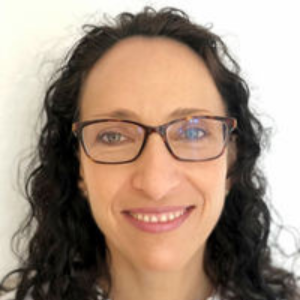Prof Lucia Melloni | Using Adversarial Collaboration to Harness Collective Intelligence
- Location
- 52 Pritchatts Road - Lecture Theatre 1 (G16), Hybrid Event, In person event, Zoom - registration required
- Dates
- Thursday 25 January 2024 (13:00-14:00)

This seminar is free to attend and is open to all, both within and outside the University. Attendance is possible both in-person and on Zoom, details of Zoom registration and physical location can be found above.
We are delighted to announce that the Centre for Human Brain Health (CHBH) will welcome Professor Lucia Melloni, Research Group Leader (Max Planck Institute for Empirical Aesthetics) and Research Professor (New York University) to present a hybrid CHBH Seminar, taking place on the date and time above. Her full biography can be found below.
To arrange a 1:1 meeting with the speaker, please state your interest in the Zoom registration link above, or email chbh@contacts.bham.ac.uk.
CHBH Event Host
Prof Ole Jensen
Using Adversarial Collaboration to Harness Collective Intelligence
Abstract
There are many mysteries in the universe. One of the most significant, often considered the final frontier in science, is understanding how our subjective experience, or consciousness, emerges from the collective action of neurons in biological systems. While substantial progress has been made over the past decades, a unified and widely accepted explanation of the neural mechanisms underpinning consciousness remains elusive. The field is rife with theories that frequently provide contradictory explanations of the phenomenon. To accelerate progress, we have adopted a new model of science: adversarial collaboration in team science. Our goal is to test theories of consciousness in an adversarial setting. Adversarial collaboration offers a unique way to bolster creativity and rigor in scientific research by merging the expertise of teams with diverse viewpoints. Ideally, we aim to harness collective intelligence, embracing various perspectives, to expedite the uncovering of scientific truths. In this talk, I will highlight the effectiveness (and challenges) of this approach using selected case studies, showcasing its potential to counter biases, challenge traditional viewpoints, and foster innovative thought. Through the joint design of experiments, teams incorporate a competitive aspect, ensuring comprehensive exploration of problems. This method underscores the importance of structured conflict and diversity in propelling scientific advancement and innovation.
Speaker Biography
Lucia Melloni is broadly interested in understanding the neural underpinnings of how we see (perception), how and why we experience what we see (consciousness) and how those experiences get imprinted in our brain (learning and memory) – as well as the interplay between these processes. She used multiple methods to get at those questions, ranging from invasive and non-invasive electrophysiological and neuroimaging methods over behavioral techniques to online surveys. Answering those questions in humans also needs methods advancement, which is another focus of her lab. The most recent one focus is on laminar electrophysiology in humans. Finally, she is committed to team-science and open science practices and she is leading a large-scale adversarial collaboration, involving 11 international collaborators to learn more about the footprints of consciousness and what makes us humans.
This seminar is free to attend and is open to all, both within and outside the University. Attendance is possible both in-person and on Zoom, details of Zoom registration and physical location can be found above.